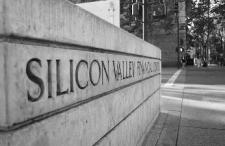‘Silicon Valley arrogance’? Google misfires as it strives to turn Star Trek fiction into reality
By Charles Piller,
STAT News
| 06. 06. 2016
MOUNTAIN VIEW, Calif. — Google employees, squeezed onto metal risers and standing in the back of a meeting room, erupted in cheers as newly arrived executive Andrew Conrad announced they would try to turn science fiction into reality: The tech giant had formed a biotech venture to create a futuristic device like Star Trek’s iconic “Tricorder” diagnostic wizard — and use it to cure cancer.
Conrad, recalled an employee who was present, displayed images on the room’s big screens showing nanoparticles tracking down cancer cells in the bloodstream and flashing signals to a Fitbit-style wristband. He promised a working prototype of the cancer early-detection device within six months.
...
It’s axiomatic in Silicon Valley’s tech companies that if the math and the coding can be done, the product can be made. But seven former Verily employees said the company’s leadership often seems not to grasp the reality that biology can be more complex and less predictable than computers.
Continue reading on STAT News
Image via Flickr
Related Articles
By Arthur Lazarus, MedPage Today | 01.23.2026
A growing body of contemporary research and reporting exposes how old ideas can find new life when repurposed within modern systems of medicine, technology, and public policy. Over the last decade, several trends have converged:
- The rise of polygenic scoring...
By Stephanie Pappas, LiveScience | 01.15.2026
Genetic variants believed to cause blindness in nearly everyone who carries them actually lead to vision loss less than 30% of the time, new research finds.
The study challenges the concept of Mendelian diseases, or diseases and disorders attributed to...
By David Cox, Wired | 01.05.2026
As he addressed an audience of virologists from China, Australia, and Singapore at October’s Pandemic Research Alliance Symposium, Wei Zhao introduced an eye-catching idea.
The gene-editing technology Crispr is best known for delivering groundbreaking new therapies for rare diseases, tweaking...
By Josie Ensor, The Times | 12.09.2025
A fertility start-up that promises to screen embryos to give would-be parents their “best baby” has come under fire for a “misuse of science”.
Nucleus Genomics describes its mission as “IVF for genetic optimisation”, offering advanced embryo testing that allows...




